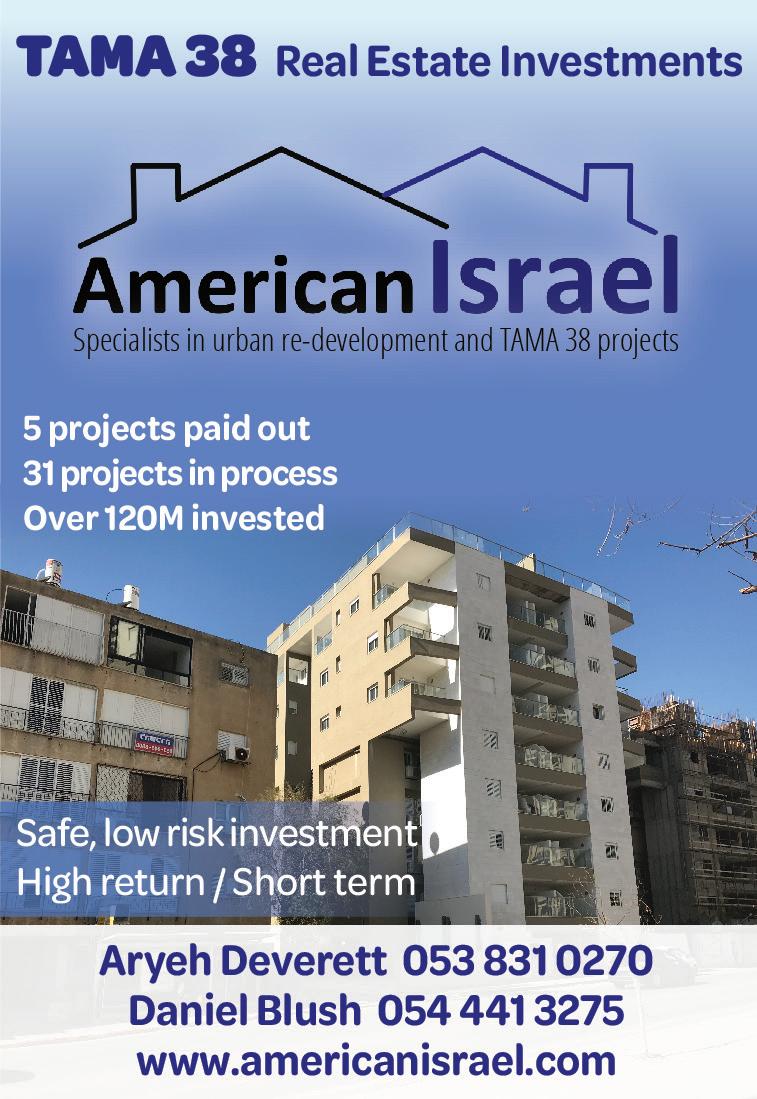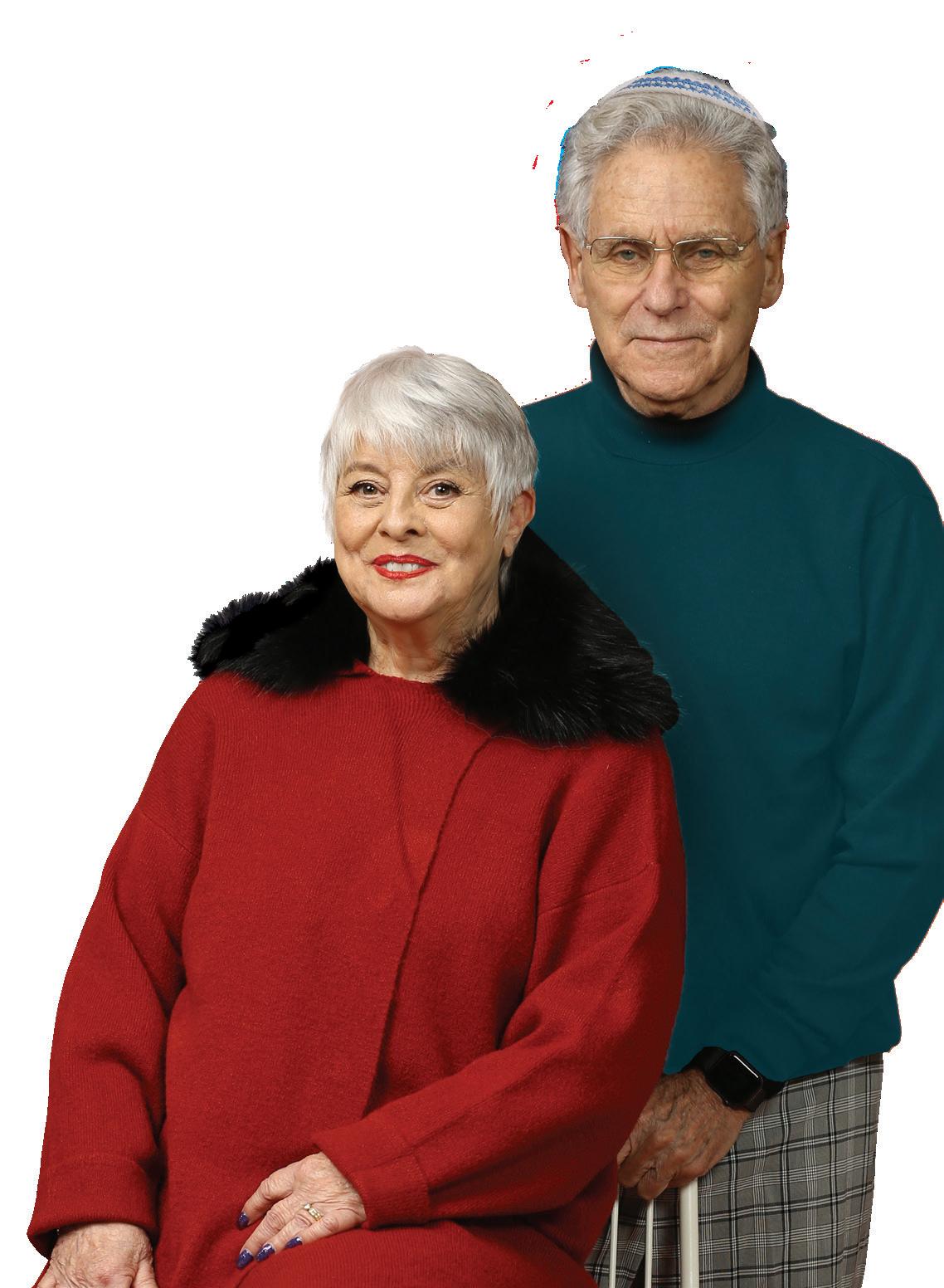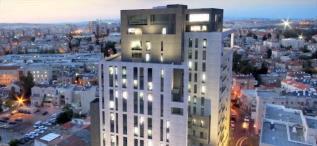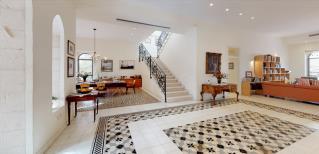
17 minute read
What Do We Receive When We Give? Rabbi Lord Jonathan Sacks
CONVERSATION
Former Chief Rabbi of the United Hebrew Congregations of the Commonwealth
Advertisement
לעילוי נשמות פנחס בן יעקב אשר וגולדה בת ישראל דוד אייז ע״ה עזריאל בן אריה לייב ומעניה בת יצחק שרטר ע״ה
Dedicated by Dr. Robert Sreter DDS., M.S.
What Do We Receive When We Give?
‘The Lord spoke to Moses, saying, “Tell the Israelites to take an offering for Me; take My offering from all whose heart moves them to give” (Ex. 25:1-2).’
Our parsha marks a turning point in the relationship between the Israelites and God. Ostensibly what was new was the product: the Sanctuary, the travelling home for the Divine Presence as the people journeyed through the wilderness.
But a case could be made for saying that even more than the product was the process, summed up in the word that gives our parsha its name, T'rumah, meaning, a gift, a contribution, an offering. The parsha is telling us something very profound. Giving confers dignity. Receiving does not.
Until that moment, the Israelites had been recipients. Virtually everything they had experienced had been God-given. He had redeemed them from Egypt, liberated them from slavery, led them through the wilderness, and created a path for them through the sea. When they were hungry, He gave them food. When they were thirsty, He gave them water. Apart from the battle against the Amalekites, they had done almost nothing for themselves.
Though at every physical level this was an unparalleled deliverance, the psychological effects were not good. The Israelites became dependent, expectant, irresponsible and immature. The Torah chronicles their repeated complaints. Reading them, we feel that they were an ungrateful, querulous, petulant people.
Yet, what else were they to do?

They couldn’t have crossed the sea by themselves. They couldn’t have found food or water in the wilderness. What produced results was complaining. The people complained to Moshe. Moshe turned to God. God performed a miracle. The result was that, from the people’s perspective, complaining worked.

Now, however, God gave them something else entirely. It had nothing to do with physical need and everything to do with psychological, moral and spiritual need. God gave them the opportunity to give.
One of my memories, still blazing through the mists of forgotten time, goes back to when I was a child, perhaps six or seven years old. I was blessed by very caring, and also very protective, parents. Life had not given them many chances, and they were determined that we, their four sons, should have some of the opportunities they were denied. My late father of blessed memory took immense pride in me, his firstborn son.

It seemed to me very important to show him my gratitude. But what could I possibly give him? Whatever I had, I had received from my mother and him. It was a completely asymmetrical relationship.

Eventually, in some shop I found a plastic model of a silver trophy. Underneath it was a plaque that read, “To the best father

in the world.” Today, all these years later, I cringe at the memory of that object. It was cheap, banal, almost comically absurd. What was unforgettable, though, was what he did after I had given it to him.
I can’t remember what he said, or whether he even smiled. What I do remember is that he placed it on his bedside table, where it remained – humble, trite – for all the years that I was living at home.
He allowed me to give him something, and then showed that the gift mattered to him. In that act, he gave me dignity. He let me see that I could give even to someone who had given me all I had.
There is a strange provision of Jewish
law that embodies this idea. “Even a poor
person who is dependent on tzedakah
(charity) is obligated to give tzedakah to
another person.” 1 On the face of it, this
makes no sense at all. Why should a person who depends on charity be obligated to give charity? The principle of tzedakah is surely that one who has more than he
1 Rambam, Mishneh Torah, Hilchot Mattenot Aniyim 7:5. or she needs should give to one who has less than he or she needs. By definition, someone who is dependent on tzedakah does not have more than they need.
The truth is, however, that tzedakah is not only directed to people’s physical needs but also their psychological situation. To need and receive tzedakah is, according to one of Judaism’s most profound insights, inherently humiliating. As we say in Birkat ha-Mazon, “Please, O Lord our God, do not make us dependent on the gifts or loans of other people, but only on Your full, open, holy and generous hand so that we may suffer neither shame nor humiliation for ever and for all time.”
Many of the laws of tzedakah reflect this
fact, such that it is preferable that the giver
does not know to whom they give, and
the recipient does not know from whom
they receive. According to a famous ruling
of Maimonides the highest of all levels of
tzedakah is, “to fortify a fellow Jew and
give him a gift, a loan, form with him a
partnership, or find work for him, until he
is strong enough so that he does not need
to ask others [for sustenance].” 2 This is not
2 Ibid., 10:7.
OPTION FOR PRIVATE SEDERS JERUSALEM - ZIPORI GUEST HOUSE Full schedule of events including the world famous Cantor Eliyahu Greenblatt Scholar in Residence Rabbi Ephraim Sprecher from the OU
JERUSALEM - KINGS, RAMADA, KING SOLOMON, JERUSALEM GARDENS, & MORE! TIVERIA - ROYAL PLAZA HOTEL
Nachalat Achim Private home - 197SQM triplex, 5 Bedrooms, 5 Bathrooms, Sukka courtyard and Balcony, Renovated, Fantastic view, Rare deal - 6.1M NIS. David-0526364074. Rechavia Garden Apartment - 51SQM, 2 Bedrooms, 2 Bathrooms, Beautiful garden (80SQM) in private use, Renovated, Quiet - 2.35M NIS. Idan-0547414515. Old Katamon 90SQM, 3 Bedrooms, For Renovation, Elevator, Parking, Balcony, Lots of potential, First Floor - 3.3M NIS. Rachel-0545468732. Greek Colony New Project - 2-3 Bedrooms, variety of options for a new apartment in a central quiet location - Starting from 2.9M NIS. Idan-0547414515. FOR SALE

OLD KATAMON CLOSE TO THE SHTIBLEH Charming 3 rooms, stone building with elevator, large balcony , spacious, bright, quiet, master bedroom, parking, Exclusive, 2,690,000 NIS GERMAN COLONY In the luxury Gane Katamon Residence, Nice 3 rooms, 70 sqm,balcony, good shape, storageroom, parking, 3 directions, rare! Exclusive, 3,100,000 NIS

28, Kovshei Katamon Street, Jerusalem Tel: 02.5633008 - www.ben-zimra.com TALPIOT Great penthouse, 5 rooms, 130 sqm, terrace 90 sqm with view, Shabbat elevator, parking, storage, 3,400,000 NIS OLD KATAMON great location! Large 4 rooms ,120 sqm, luxury buiding, shabat elevator, succa balcony 15 sqm,beautiful, master bedroom, quiet, parking, storage, CLOSE TO GERMAN COLONY Large duplex 6 rooms, 150 sqm, terrace of 40 sqm, beautifully renovated, 4,380,000 NIS
Servicing the Entire Country.


PESACH IS COMING!
Only 23 more gluing days until Pesach!
Permanent furniture regluing for your loose and shaky furniture Want a longer table? Heavy Duty STEEL TABLE SLIDES for a longer table! Extends your tables to accommodate more people and strengthen weak tables
charity at all in the conventional sense. It is finding someone employment or helping them start a business. Why then should it be the highest form of tzedakah? Because it is giving someone back their dignity.
Someone who is dependent on tzedakah has physical needs, and these must be met by other people or by community as a whole. But he or she also has psychological needs. That is why Jewish law rules that they must give to others. Giving confers dignity, and no one should be deprived of it.
The entire account of the construction of the Mishkan, the Sanctuary, is very strange indeed. King Solomon said in his address on the dedication of the Temple in Jerusalem, “But will God really dwell on earth? Even the heavens to their uttermost reaches cannot contain You, how much less this House that I have built!” (1 Kings 8:27). If that applied to the Temple in all its glory, how much more so of the Mishkan, a tiny, portable shrine made of beams and hangings that could be dismantled every time the people journeyed and reassembled every time they encamped. How could that possibly be a home for the God who created the universe, brought empires to their knees, performed miracles and wonders, and whose presence was almost unbearable in its intensity?
Yet, in its small but human way, I think what my father did when he put my cheap plastic gift by his bedside all those years ago was perhaps the most generous thing he did for me. And, lehavdil, meaning no comparison, what God did when he allowed the Israelites to present him with offerings, and out of them to make a kind of home for the Divine Presence, was an act of immense if paradoxical generosity.
It also tells us something very profound about Judaism. God wants us to have dignity. We are not tainted by original sin. We are not incapable of good without Divine grace. Faith is not mere submission. We are God’s image, His children, His ambassadors, His partners, His emissaries. He wants us not merely to receive but also to give. And He is willing to live in the home we build for Him, however humble, however small.
This is hinted in the word that gives our parsha its name: T'rumah. This is usually translated as an offering, a contribution. It really means something we lift. The paradox of giving is that when we lift something to give to another, it is we ourselves who are lifted.
I believe that what elevates us in life is not what we receive but what we give. The more of ourselves that we give, the greater we become.
Shabbat Shalom
Covenant and Conversation 5780 is kindly supported by the Maurice Wohl Charitable Foundation in memory of Maurice and Vivienne Wohl z”l.
These weekly teachings from Rabbi Sacks are part of the ‘Covenant & Conversation’ series on the weekly Torah reading. Read more on www.rabbisacks.org.
SEALING SERVICES


New projects 3,4, 5 rooms at great prices! Call today: Eta: 054-723-3863
Baka 100 sqm apartment in new project, 3 bedrooms, 2 full bathrooms, high ceilings, terrace (partial sukka) shabbat elevator and parking. 4,250,000 NIS.
2 amazing apartments - in an historic building: • Penthouse, 142.5 sqm, rooftop of 100 sqm. 7,500,000 NIS. • Garden Apartment 300 sqm built space with 375 sqm garden. 12,500,000 NIS. Old Katamon 130 sqm beautiful duplex apartment with high ceilings, 3 bedrooms, 2.5 bathrooms, 20 sqm sukka terrace, elevator and parking. 5,500,000 NIS
115 sqm, new apartment, with 50 sqm registered garden. Ready to move in. 4,300,000 NIS Talbiya King David Crown apartment for sale. 24/7 doorman. 145 sqm on one oor , facing garden, 3 bedrooms, 2.5 bathrooms, terrace, parking, Shabbat elevator and storage. USD 1,800,000. German Colony 100 sqm apartment in a new project to be ready in 2 years. 50 sqm registered garden, parking. 4,500,000 NIS.
149 sqm luxury garden cottage, quiet green street, 190 sqm registered garden. 9,800,000 NIS. City Center King George, amazing beautifully renovated and ready to move in, 116 sqm 5 room apartment, 4 bedrooms & 2 full bathrooms, 2 elevators (one shabbat), small terrace. Modern kosher kitchen, large living room/dining room. 3,600,000 NIS.
North Talpiot/Caspi
Rehov Caspi, view of the old city, 5th oor, 191 sqm brand new apartment, 30 sqm sukka terrace, Shabbat elevator. 9,500,000 NIS.
054-723-3863
Eta Morris Realty, Ltd. etamorrisrealestate@gmail.com Tel: 054-723-3863 · etamorrisrealty.co.il
THE PROPHETS
The charge given to B’nai Yisrael in this week’s parasha, i.e. to raise funds for the construction of a center of religious worship, is simple to understand. To the nomadic tribes traveling in the desert, tribes that had, up to then, relied on the prayers of their leaders to entreat Hashem, it was essential to shift that responsibility to the people themselves and impress upon them their personal connection to G-d. At the same time, the establishment of a religious center for the nation of Israel was another step in forging a bond between the tribes and changing their perception of the nation from that of loosely connected tribes to one united nation, worshipping their One G-d in one place. And, if this was true of the Mishkan, whose function is mentioned in our parasha, it was certainly true of the Beit Mikdash whose construction is detailed in our haftarah.
Some four hundred and eighty years had passed since G-d instructed Moshe to build the Mishkan. Throughout that time, the Mishkan served as the focal point for the service of Hashem. It was the center
of ritual service, of the sacrificial rites and of the thrice yearly pilgrimages of the nation. Unfortunate, however, the Mishkan was not successful as a “uniter” of the tribal nation. Throughout the period of the Judges, we find the nation more like a confederation of provinces rather than a nation. As we have mentioned in the past, throughout the 350+ years of the Shoftim period, there was never a national army or even a united tribal coalition to battle the enemies. The Mishkan, which had been moved from Gilgal to Shilo by Yehoshua to better centralize its location, was ineffective in attracting the struggling tribes to worship there. Chazal sensed that when they comment about the annual pilgrimages of Elkanah, the father of Shmuel HaNavi’ saying that they were taken on different routes by the saintly Elkanah in order to attract Israel to join him in his pilgrimage, as few went to the Mishkan even on the chagim. After the inspired leadership of Shmuel, King Saul succeeded in uniting the people under his rule and even in forming a national armythe first one since the days of Yehoshua. But tribal jealousies still remained and worship in the Mishkan was not widely practiced. David Hamelech says this openly when he calls to the people to gather the Kohanim and the Leviim to join in moving the Holy Ark to Yerushalayim and explains to them the importance of that move “ki lo
THE BEST DECISION WE EVER MADE Mediterranean Towers residents
Call now * 9134
Daf Yomi class Every Sunday at 9 p.m. Free entrance

The House in Arnona, Jerusalem The first choice for the third age
The magnificent house in Arnona offers spacious and luxurious apartments. If you appreciate quality, come and enjoy a wonderful living environment, and varied program of cultural and physical activities. New options till the end of March
d’rashnuhu biymei Shaul,” “for we failed to worship Him throughout the time of Shaul.” (Divrei HaYamim A 13; 3).
King David, who successfully united the people, felt it time to build a Beit Mikdash to further connect them to each other. He understood that the people, living in their separate tribal settlements, felt little connection one to the other. A magnificent religious center, however, a glorious, palatial edifice, would attract the masses to the Beit Mikdash and would resuscitate the mitzvah of aliya l’regel on the chagim. And that mitzvah would bring the residents of Zevulun down to Yerushalayim where they would meet the pilgrims from Gaddwelling east of the Yarden, where they would be greeted, and even hosted, by the Judean residents of Yerushalayim! G-d turned down David’s request to build the Temple but He promised that it would be built by his son, Shlomo.
And that is what our haftarah is about.
The single nation worshipping but One G-d required one center of worship. It was a beautiful edifice, a sanctified place and a center of justice as well.
But, perhaps more important for the often-divided people, it was a place of unity, of peace and of connection to each other.
The Beit HaMikdash where each day the Leviim walked up the 15 stairs and stood singing:
“Hineh ma tov uma na’im shevet achim gam yachad!!!!”
RAINBOW OF MUSIC 2020


With special guests Shai Abramson ////// Akiva ////// Ramatayim Men's Choir Directed by Richard Shavei-Tzion
Rebecca Crown Auditorium, Jerusalem Theatre MARCH 25 2020 //ADAR 29 5780 // 8:00pm //
Order tickets at: rainbowofmusic.org // phone: 02-5670602
26 TORAH TIDBITS / T'RUMAH 5780 Proceeds from this evening pay for therapies for children with disabilities, in loving memory of Malki Roth Z”L.
The best team in Jerusalem real estate

Mitzpe Street, Nachlaot Great family home or investment, 5 rooms, 125 sqm, (can be divided) sukkah balcony, great ROI on rental. 100 Sqm roof Price reduced! Now only NIS 2,850,000 Orna Even-054-621-6069







Shalem Tower-Jaffa street. Across the street from Seidoff. Great opportunity. 125 Sqm. Succah balcony. Amenities include: pool, gym, residents hall, Parking, storage. NIS 4,200,000 Chani Chen 053-522-4782 Rabbi Arye Street, Nachlaot Authentic apartment with high ceilings & arches for renovation, 5 rooms, including 3 Ottoman rooms, 110 sqm. Charming, tree lined street. 2,700,000 NIS Orna Even 054-6216069






Talbieh –Balfour St. Prestigious aptin the heart of Talbieh Architecturally designed renovations 1st floor, 3 rooms (112 sqm), 3 balconies, 2 storage rooms, NIS 6,850,000 Alyssa Friedland -054-668-4111
Arnona –Tadeski 3 Garden apartment on two floors. 6 rooms. 170+ Sqm. Private gardern 100 Sqm. 2 parking spots. 1 st
floor. Elevator. Asking NIS 3,890,000 Orli Raz 050-724-3735




Mordechai Hayehudi, Baka Palatial Old Arab Home in the heart of Baka 8 rooms / 4 bathroom ( 273 sqm) +3 large Sukka balconies ,breathtaking views, additional building rights Alyssa Friedland -054-668-4111 Arnona –Israel Eldad 3 Beautifully renovated garden apartment. 70 Sqm. 3 rooms. 80 Sqm garden. Covered outdoor kitchen+dining. Parking Handicapped accessible. NIS 2,800,000 Orli Raz 050-724-3735





On top of the world -French Hill Wonderful 4 rooms, private parking, handicapped accessible. Amazing view from balcony, high floor, Shabbatelevator , large balcony, secured. Only $658,000 Nelly Ephrati Artom 052-476-4356


Arnona –Vashits 6 Garden apartment with special character. 130 Sqm. 5 rooms (including separate unit). Private entrance. 90 Sqm. Private garden. Asking NIS 4,399,000 Orli Raz 050-724-3735










